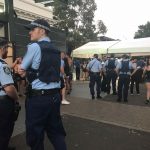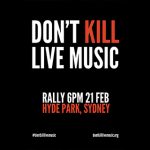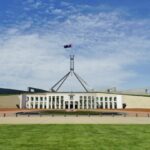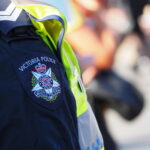Police Are Quick to Label Muslim Teens as Terrorists, But the Same Doesn’t Apply to Others

The Alliance of Australian Muslims released a 26 April statement about the recent terror raids in Sydney, which were sparked by a 16-year-old Muslim boy stabbing a priest and led to six more Muslim teenagers being charged with terrorism for allegedly having thought about planning a terrorist act.
A clear issue here is that while terrorism is defined as an act done to advance a political, religious or ideological cause, and the stabbing was linked to religion, should a teen taking discussions with his mates too seriously, to the point of committing crime, result in decades of prison time for them all?
The alliance also pointed to a recent case involving a man leaving “a suspected bomb with a political message outside a home”, which was “not labelled terrorism”, and it further insisted that this creates the perception of a double standard within the criminal justice system.
This nonterror terror incident occurred in January, when the accused, who’s accepted responsibility, placed a homemade bomb in the driveway of Botany man Theo, along with a note demanding the removal of a Palestinian flag, which displayed his support for the people of Gaza.
And despite Theo leading a seemingly successful campaign to have the charges against the perpetrator, Israeli man David Wise, upgraded to terror offences, as those laid did not reflect this, when the man appeared in court on 23 April, the matter was still considered a nonterror crime.
When is a terror act, not a terror act?
“The man who placed a bomb at my home demanding I remove my Palestinian flag and made two other threats against me has again been denied bail,” Theo, who has withheld his last name, wrote on X on 23 April, following Wise having appeared in court at Sydney’s Downing Centre that day.
Theo told Sydney Criminal Lawyers in late March that he and his supporters had been campaigning to see the charges laid against Wise upgraded, and the police prosecutor had subsequently referred the matter on to the Commonwealth Director of Public Prosecutions for redetermination.
Wise has admitted to leaving the combustible device on Theo’s ute, which was parked in his Botany driveway in January, after he’d flown a Palestinian flag in front of his house, along with a chalkboard, upon which he’d written about his opposition to the Israeli perpetrated genocide in Gaza.
The homemade bomb consisted of a jerry can, partially filled with petrol, with a rag hanging out. Bolts were strapped to it, and a lighter was attached, so anyone could have walked up and lit the fuse. And there was also a note stuck to it, which read “Enough! Take down flag! One chance!!!”.
On it having been reported to NSW police, the bomb squad showed up at Theo’s home, accompanied by its robot, and it spent several hours determining that the device, was an inactive improvised explosive device, meaning that lighter attached would have to be utilised before anything dangerous happened.
Yet, from there, the case was not given to the terror unit, rather a junior officer was left to investigate it.
And after a two-month delay in police arresting Wise, despite being aware early on that he’d appeared at Theo’s spouting Zionist rhetoric in response to his pro-Palestinian display, the construction boss was remanded, and the charges laid revealed police consider it a stalking matter.
Charging to conceal
Wise was charged with send article to cause alarm, two counts of stalk/intimate, use carriage service to menace, harass or cause offence, and unlawfully enter inclosed land.
And as the authorities aren’t considering this a serious enough to run in the NSW District Court, none of these offences carries more than 2 years prison time in the Local Court, which reflects the nonterror approach taken to the matter.
A key reason one might have expected NSW police to have charged the crime as terrorism is part 5.3 of the Criminal Code Act 1995 (Cth) defines a terrorist act, as a dangerous action causing serious harm or threatening it, with the intention of advancing a political, religious or ideological cause.
And charging in accordance with this would likely have resulted in one count of engaging in or threatening a terrorist act, under section 101.1 of the Criminal Code, which carries a maximum penalty of life in prison.
Currently, the Israeli government is carrying out a genocide against the Palestinians of Gaza, with the International Court of Justice having ruled this is likely so. And this international crime is being fuelled by Zionist ideology, of which Wise had been around Theo’s property expressing in the past.
So, there was a clear political motivation behind Wise having left the explosive device that unambiguously was implying that the target of the act might consider that they would potentially lose their life if they didn’t remove the display reflecting support of a political cause.
The Alliance of Australian Muslims questions the recent stabbing being designated a terrorist act due to its apparent link to religion as problematic, as “extensive scholarly work” has “demonstrated that terrorism is driven by political and ideological motives, not religious faith”.
Yet, when Wise just appeared in court, the charges continued to reflect that NSW police and the Commonwealth Director of Public Prosecutions consider that this act of threatening someone’s life to shut them up on political issues is an act of stalking, and no terror motivation could be identified.
And Theo advises the CDPP found insufficient evidence, due to the homemade bomb not being designated a prohibited weapon by NSW police, while the case has never been referred to the NSW Director of Public Prosecutions.
A rising fear of the official approach
Wise will be appearing in court early this month for sentencing following his recent court appearance, where it came to light that the authorities are progressing with a stalking prosecution, and he has been refused bail again.
Theo considers that Wise being denied bail is a clear indication that the judiciary believes it to be a more serious matter than does state law enforcement. And he further raises question as to why the authorities have resisted considering an obviously dangerous device a prohibited weapon.
The Botany man has repeatedly made clear that the impact of the incident has been made all the more detrimental by the refusal of NSW police management to approach the matter with the gravity it deserves, as someone has threatened his life, and the state hasn’t taken it seriously.
Indeed, the reason Theo was able to successfully mount the campaign to see the federal prosecutor consider the matter, at least on the surface, is that many of his supporters were acting out of their own fears that a homemade bomb was left at a civilian’s home, and it’s since been downplayed.
And in terms of the broader optics here, Theo expressed in late March, that he’s “very concerned that it creates tacit permission to many other people that have been making threats and attacks towards Palestinians and their supporters”.







